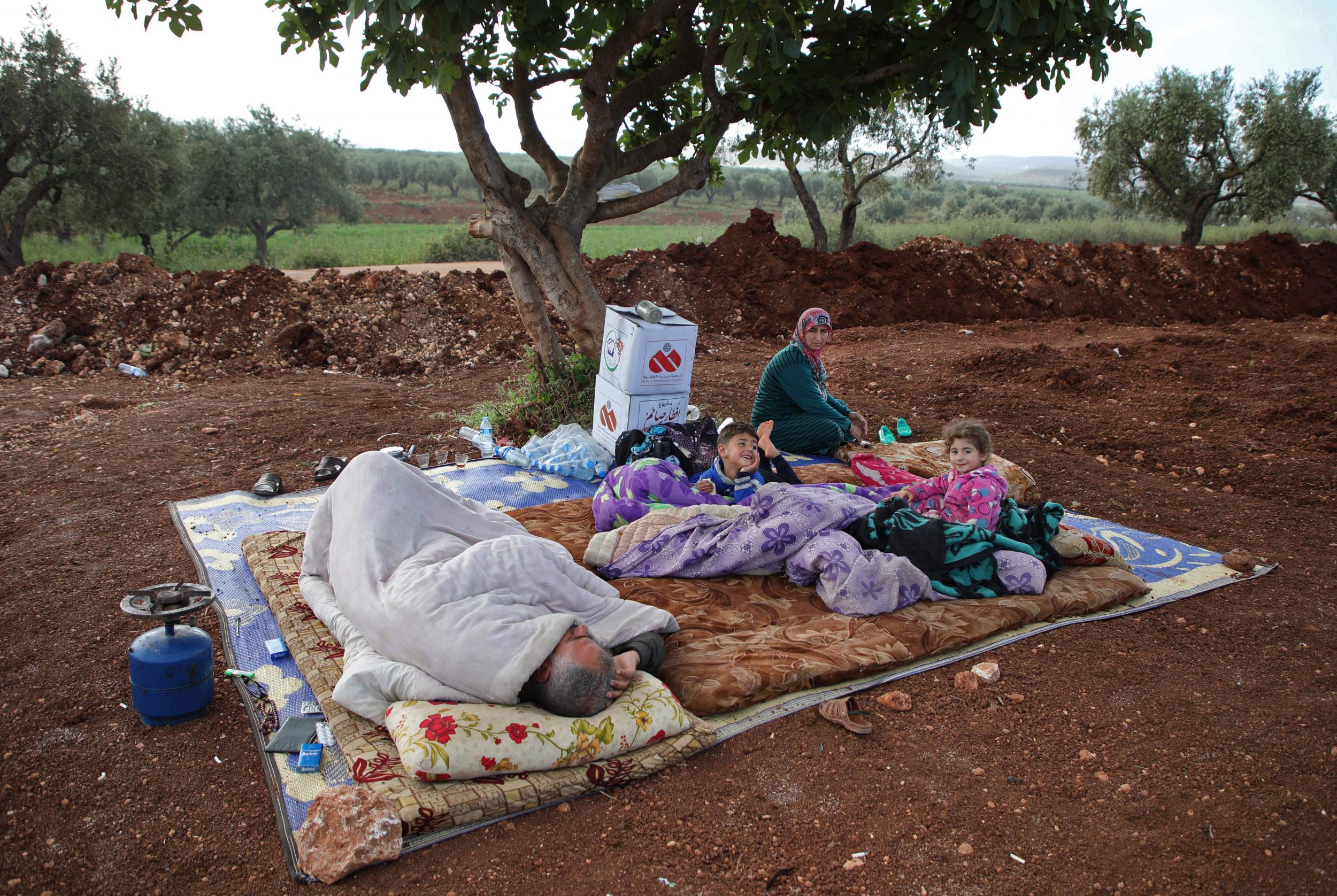Syria – Regime airstrikes on Idlib kill over 180 as thousands forced to flee: ‘It took ages to pull the bodies out’
Many fear worst surge in fighting in months could hail start of massive regime offensive on the rebel and jihadi-held province
More than 180 people have been killed and over 150,000 have fled their homes in Syria’s Idlib province in a devastating bombing campaign by the Syrian regime and its allies over the last week.
Foreign secretary Jeremy Hunt and French president Emmanuel Macron condemned the strikes over the demilitarised zone, saying they have hit schools, hospitals and first responders.
Mr Hunt also noted that it marked the first use of deadly barrel bombs since the signing of a truce in September.
The Syrian Observatory for Human Rights (SOHR) told The Independent the deadly flare-up had killed 188 people since 30 April, including 88 civilians.
Among the dead are a dozen children.
Civilians on the ground said they were running out of food and were left hiding in farms in the open.
“I am deeply concerned by the escalation in military action by Russia and the Syrian regime in Idlib,” Mr Hunt said on Tuesday. “This has included horrifying reports of attacks on schools, hospitals and first responders.
“The latest offensive – a flagrant violation of the ceasefire agreement that Russia itself agreed with Turkey – is only compounding what was already a dire humanitarian situation in Idlib.”
He threatened a “swift and appropriate response” if Russia or Turkey used illegal chemical weapons.
Mr Macron echoed his words, calling the rising violence in Idlib “extremely alarming”.
“Airstrikes by the regime and its allies have killed many civilians over the past few days … Syria’s humanitarian situation is critical, and no military option is acceptable,” he added.
A September ceasefire deal between Russia and rebel backer Turkey was supposed to prevent a massive regime offensive in the region, which is home to some 3 million people.
Under the terms of the agreement, hardliners and jihadists were to withdraw from a planned buffer zone, allowing traffic to flow along two strategic highways, M4 and M5, which connect government-held areas with the Turkish border.
But Hayat Tahrir al-Sham (HTS), which is dominated by members of a former al-Qaeda affiliate, has failed to leave, apparently leading to a spike in deadly airstrikes and shelling by the regime and ally Russia.
The surge in attacks has raised fears of an imminent full government offensive, prompting thousands of civilians to flee their homes into rural areas of Idlib province.

On Wednesday, pro-government Central Military Media reported that troops entered Kafr Nabudah, a rebel-held village about 50km south of Idlib city, in a southwestern edge of the enclave.
The Britain-based SOHR confirmed the ground operation, which was launched with close air support.
Civilians and first responders in the area said that the bombardment had been so heavy that many had been forced to hide deep in the countryside with no food or medical supplies.
“It’s mass displacement ... there is no sign of life in the place,” Mohamed, a Syria Civil Defence member told The Independent.
“We can’t use the lights or the fire to cook and the stores are closed so, of course, we can’t buy any food,” he added, explaining that light alerts Russian reconnaissance planes to their location.
He said this had slowed the work of first responders.
He added: “The Russians targeted a house in a nearby town called al-Omqya. When we went there we found five bodies – two girls, two boys and a man – and we had to work in the dark without using the lights. It took us a lot of time to pull the bodies out.”
Earlier this week, UN chief Antonio Guterres called “for an urgent de-escalation” and urged “the parties to recommit fully to the ceasefire arrangements”.
Mr Guterres said at least seven health facilities and nine schools had been hit since 28 April.
Unicef executive director Henrietta Fore, meanwhile, said that aid workers were now unable to access many areas.
She said: “At least 5,500 people have been left with no water at all. Services can only resume once security conditions improve.”
Join our commenting forum
Join thought-provoking conversations, follow other Independent readers and see their replies
Comments
Bookmark popover
Removed from bookmarks